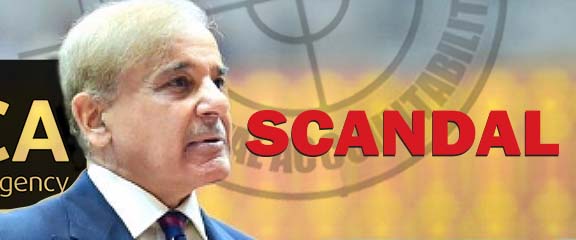The opposition parties and many of their cheerleaders in the media want Pakistanis to believe that Prime Minister Imran Khan’s days in power are numbered and his ouster is now just a matter of time. They are also playing up the prime minister’s differences with the military establishment amidst claims that their select few leaders have already got a nod from the powerful quarters to give the Pakistan Tehreek-e-Insaf (PTI) government the proverbial last push.
As the opposition parties submit a no-confidence motion against the prime minister, Pakistan remains caught in the web of conspiracy theories, which all give one message — the country would soon slide back to the same old ‘golden era’ when the Sharifs, the Zardaris and the tried and tested set of dynastic politicians used to rule the roost as undisputed kings and masters of this nation of more than 220 million people. And this time around with the blessings of the military, while Imran Khan and his slogans of change would be remembered just as an aberration in Pakistani politics rather than a trend here to stay.
But is this really the case? Has the die been cast in favour of the opposition parties — the Pakistan Muslim League-Nawaz (PML-N) and the Pakistan Peoples Party (PPP) — and are Imran Khan and his PTI on their last leg? Going by the opposition, its allied mainstream media and their organised network of propagandists on social media, this appears to be the perception. However, the devil lies in the details.
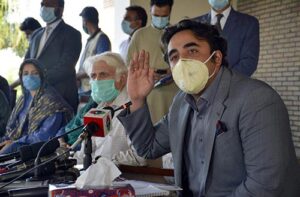
Undoubtedly, Prime Minister Imran Khan’s government is under pressure because of a host of factors, including his slim majority in the Parliament, which makes it vulnerable and dependent on the allies. The country’s immediate economic challenges, including the biting inflation and soaring current account deficit, have intensified against the backdrop of a tougher than usual International Monetary Fund (IMF) programme. Yet, most of these economic challenges are the result of the exogenous shocks — from the fallout of the pandemic and high international commodity prices due to the latest Russia-Ukraine conflict. These external factors have overwhelmingly offset the benefits of the increased economic activities, higher exports and better revenue collection. A situation, which is being exploited by the opposition to build a narrative about the government’s alleged incompetence.
This, however, does not mean that we ignore how the State Bank of Pakistan (SBP) and its controversial Governor Dr. Reza Baqir damaged Pakistan’s economy by keeping the interest rates in double digits all through 2019 and early 2020. The sharp devaluation of the Pakistani currency against the dollar, which many economic experts say now stands under-valued, added to the country’s economic woes. On top of that, political expediency prevented the PTI government from implementing its reforms agenda — from the police to the crucial energy sector reforms. Additionally, the government did not manage to push the privatisation programme or turn around the loss-making state-run institutions. But saying this, the scorecard of the PTI government is not all bad.
It did handle the COVID-19 challenge extraordinarily well. A fact now internationally acknowledged. The pro-people initiatives like the Ehsaas Programme, shelters for the poor, the Sehat Card and the Kamyab Jawan Programme did win the hearts and minds of many low-income Pakistanis. A number of economic initiatives also helped boost economic activities — particularly in the real estate, textile, IT and select other manufacturing sectors — increase exports and earn massive profits for the corporate and business entities. Under some extremely challenging circumstances, this is not a bad performance, though it fell too short of the government’s own rhetoric and expectations that it built among the masses.
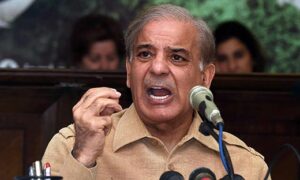
The government’s biggest failure, however, has been on the much-publicised accountability front, which remains the cornerstone of the PTI and Imran Khan’s politics. The government did manage to provoke and threaten a number of opposition leaders because of its frontal attacks exposing their alleged corruption and framing cases against them, but unfortunately, the country’s poor investigation, prosecution and legal system failed to bring any of them to closure.
Former premier Nawaz Sharif slipped through the government’s fingers and has been living in London since November 2019, while all the opposition heavyweights accused of corruption are roaming around freely either on bail or after being acquitted. But Imran Khan’s failed crusade against corruption continues to ring alarm bells for all those politicians who want to protect their massive business empires and political turf. A mere lip service to the anti-graft campaign, forces even those opposition leaders to join hands, who traditionally compete against one another.
As the battle lines between the government and the opposition are being drawn for what many believe is the final push, the stakes appear to be higher for the opposition parties than Imran Khan, who neither has to pass on the baton of his political dynasty to any son or daughter nor protect the family’s business or commercial interests. To stay in the game, Imran Khan needs to survive the no-confidence motion, which appears a steep challenge given the dissensions within the PTI camp and his allies. If despite all the odds, the prime minister manages to reach the finish line, he would hold chances in the next elections as the only politician with a following in all the four provinces. His main rivals — the PML-N holds its main cards in Punjab, while the PPP banks predominantly on the rural Sindh.
But whether Imran Khan completes his term or goes down a few months ahead of time, he would be very much a force to reckon with in the next elections.
The opposition’s dilemma appears greater than Imran Khan as its top leaders battle for political survival and to protect their business interests. It is also not as monolithic as many would want to believe and stays marred with internal frictions, contradictions and competing interests.
The PML-N, the largest opposition party, has been shifting its stances every few months. From the message of reconciliation with the military establishment as espoused by Shehbaz Sharif to outright confrontation — the line adopted by Nawaz Sharif and his daughter Maryam — the PML-N has tried both.
In the words of a PML-N stalwart, dealing with the PTI is not a problem, but neutralising the military continues to remain a challenge. “We thought that by attacking the military leadership, we would create space, but we failed to create even a minor crack in the walls of the GHQ. The confrontation did not help us,” he said, requesting anonymity.
However, Shehbaz Sharif’s efforts helped Nawaz Sharif as he was plucked out of prison in an unprecedented concession given by the court, and was sent for treatment to London, where after a few months of silence, he again started attacking the military’s top brass. But this strategy did not help the PML-N get more concessions. Therefore, Shehbaz Sharif again appears to be in the driving seat and Nawaz is forced to shift gears to pragmatic politics and abandon the ideological stance.
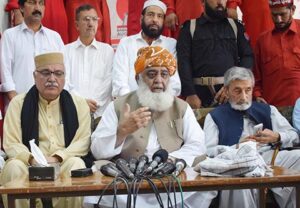
The PML-N stalwart said the party’s top leadership has resigned to the fact that they must mend fences with the army leadership at any cost. “There has also been a realisation within the army that the project IK (Imran Khan) has failed to yield results as the economy is in a mess and the country’s promised stability and progress remain elusive,” he claimed.
The next elections are being considered make-or-break for the PML-N as if it remains out of power for another five years, the party won’t be able to stand united, party insiders say. That should explain the desperation of the Sharif family and the top PML-N leaders to get themselves rehabilitated in the corridors of power with Shehbaz eyeing the top slot. He is in a hurry to become prime minister as the focal point of the PML-N’s politics is now to win the next elections.
For many of the PML-N seniors, including the two Sharif brothers, the next elections could probably be their last. Nawaz will be 73 in December 2023, while Shehbaz will be 71 coming September. Both these patriarchs are betting on their children — Maryam, 48, and Hamza, 47, respectively — to carry forward their political dynasty.
“The PML-N cannot wait for another five years. It will end in factions if it stays out of power any longer,” the PML-N veteran said. “Going into the final year, all our focus is on how to win the next elections. And yes, we are aware that the reality of the army has to be accepted,” he said, underlining the fact how the party and its leadership suffered each time it confronted the country’s most powerful institution.
He said that he doesn’t see any change coming in the power matrix of Pakistan. “Nawaz Sharif is a pragmatic person. He has accepted reality.”
But the PML-N’s desire to pave a way for itself into the power corridors via GHQ should not be seen as a done deal. The military leadership has its own way of taking stock of the situation and making decisions. Going by the official on-the-record and off-the-record interactions with the press, the military high command has been unanimous in giving one message; it is not into the business of making or breaking governments. But then, there is many a slip between the cup and the lip.
Since the 2002 elections, every ruling party has completed its five-year term. Will it be different in the PTI’s case? Has Prime Minister Imran Khan committed more mistakes than his predecessors? Is the corruption graph under his watch higher than that of the Sharif and Zardari families?
However, the opposition desperately wants an early ouster of the government through an in-house change so that they can make changes to at least the election laws. One of their top priorities is to scrap the law concerning the use of Electronic Voting Machines (EVMs) in the next elections. For Shehbaz Sharif, grabbing power sooner than later is vital as he also faces some mega corruption cases.
The PPP appears on the same page with Shehbaz as he wants the Parliament to complete its term and remains open to giving some key ministries in the next federal government to his one-time nemeses as well as making a few seat adjustments in Punjab with it — an idea opposed by many within the PML-N.
But the success of the opposition camp hangs solely on the presumption that the establishment would give tactical support to the anti-Imran Khan move through its “neutrality” which in fact is the other way of supporting his ouster.
However, many major politicians within the opposition camp see these expectations as misleading. They say that there are difference of opinion on several issues, including on some foreign policy matters as well as keeping Usman Buzdar as the chief minister of Punjab, but the trust gap between the PTI government and the military leadership is not to the level as it was during the days of the PML-N or the PPP. The issue about the appointment of the ISI chief is now water under the bridge. Overall, the military establishment remains at ease with the PTI and continues to enjoy a level of trust with its leadership. This appears not the case with the opposition, especially with the PML-N.
Compared to the PML-N, which is in a rush to come to power, the PPP is sitting on the political chessboard with a long-term view. Bilawal is in his early 30s and is not in a hurry to become the prime minister, though his party will certainly be taking its chances to form a coalition if it gets some seats in Punjab. But for now, the PPP is focused on keeping its turf in Sindh intact, where it faces little competition — especially in the rural Sindh.
Yet, the PPP also wants to see the back of Imran Khan and stands in consensus with the PML-N hawks that he should not be allowed to appoint the new army chief or give an extension to the sitting one. If this happens, and Imran Khan gets another five-year term, then it would be another tough five years for these two parties and their leaders.
Despite all the lip-service to the cause of democracy and supremacy of the Parliament, the opposition’s game plan is based overwhelmingly on which way the winds blow from the GHQ. For their part, Imran Khan and his team appear confident that they can survive the opposition’s protests on the roads and the no-trust move in the Parliament.
Known for his stubbornness and resilience, Imran Khan appears prepared to brace the no-trust move. However, as the captain and the opposition dig in their heels, Pakistan’s parliamentary form of democracy seems to have again failed in providing the much-needed direction and political stability to the country.
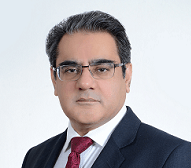
The writer is a senior journalist and managing editor, Narratives.



